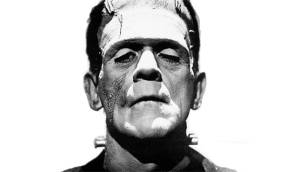There is a lot of discussion about horror right now – it is October, after all, so I suppose it to be appropriate. Oddly, though, much of it centers around why we read or watch it, should we, etc. Do crime fiction writers deal with this? Because it seems every genre these days has a persecution complex – YA, Romance, SciFi, grow some skin already. But I digress.
I’d like to avoid those issues, though, because they are subjective and immaterial. Horror is not my personal favorite, because all to often it is cheap, and depends on shock more than it does on actual art and talent (before horror fans and authors start piling on me, this can be applied to most genres, I am not picking on you). Follow the clichés and pump the stories out like machines, and they sell a bunch around Halloween.
But, of course, there is another side to it, the side with talent and artistry. What makes something horrific, scary, or creepy?
I’ve written a lot recently on subtlety, irony, and narrative within a story, and this is really just another facet of that gem. Because horror, at its core, is playing to our emotions, fear in particular. But is it enough to just scare someone? Sure, if that’s all your going for. That’s why there are so many jump-scares and gore splatters in horror movies. It makes you jump, or feel revulsion, but then it passes. Horror – to me – should be about more than that.
There is a movie called Synecdoche, New York, and it is not a horror film at all, but go and watch it right now because it is amazing. The thing this movie does, though, is it grips you and tears you apart in a million ways. The thing about it, though, is Charlie Kaufman, who wrote and directed it, said he started out to write an existential horror. And with no blood and bodies and monsters, it is that, because it addresses other emotions than fear – yet, those emotions are ones we fear of themselves.
Which is the more relatable fear? The monsters under our bed – which we all know to be imaginary – or feeling lost, trapped, alone, helpless, and/or sad? None of those feelings are imagined, and we have all felt them, at least to some extent. The great horror writers use this to their advantage. I have used Poe as an example a lot lately, so we’ll let him rest, even though he certainly does this.
Stephen King is a master of this. Why are so many of his books so deeply haunting and terrifying? Because they are also frequently sad as hell. It amplifies the effect of the actual fear. Carrie isn’t a scary story because she has blood dumped on her, or burns the gym down. It’s because we know Carrie. Because no matter what the quote says, we don’t fear fear itself.
Perhaps my favorite example of this is a work that probably isn’t horror at all, but because of this effect, it’s subject is universally associated with horror: Frankenstein. Why is Frankenstein’s monster always treated as a monster, a subject for Halloween decorations? Because the book Frankenstein is one of the most emotionally powerful books ever written. It takes us through every single emotion, but it bookends the feeling of despair in an incredibly powerful way.
It begins with the creators desperate search for his creation, and he has despaired of hope – of finding him, of doing anything else in life. But then we get to know the creation, the monster, the unlovable figure with a very human heart. We know his hopes, his joys, and finally his despair at the sure knowledge he will never belong. We empathize with his despair at the end more than we did with his creator’s at the beginning, because we know who the guilt belongs to. And we are horrified, because guilt belongs to man, not the monster.
Yet- the monster’s face adorns Halloween decorations.
Anyone can jump around a corner and scare someone, or tell a story about the man with the hook for a hand who roams the streets to this very day, or create a shower of gore. But if you want to keep someone up at night, use emotions other than fear, and make people fear them.
–DESR